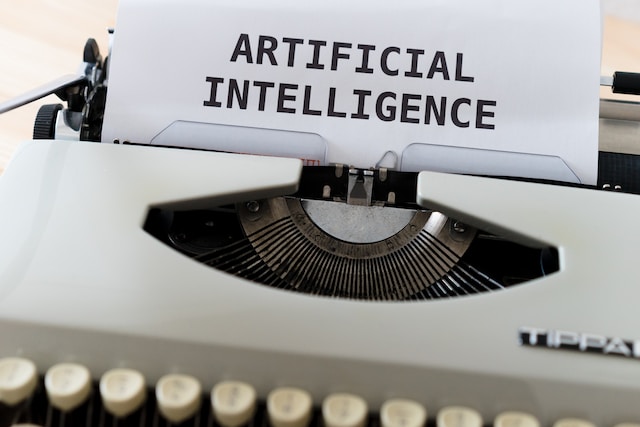
Artificial Intelligence (AI) and Machine Learning (ML) are transforming healthcare by enabling healthcare professionals to make more informed decisions based on data-driven insights. These technologies are revolutionizing the way healthcare is delivered, from disease diagnosis and drug discovery to patient care and management.
Also make sure to read our latest blog on tech startups at seed stage.
One of the primary benefits of AI and ML in healthcare is their ability to analyze vast amounts of patient data, including medical history, symptoms, and test results, to identify patterns and predict outcomes. This information can be used to develop personalized treatment plans and interventions, resulting in better patient outcomes and reduced healthcare costs.
AI and ML are also being used to improve diagnostic accuracy and speed up the diagnosis process. For example, AI-powered imaging systems can analyze medical images such as X-rays and CT scans, flagging potential abnormalities that may have been missed by human radiologists. This can help to identify diseases at an earlier stage and improve treatment options.
Another area where AI and ML are making significant strides is in drug discovery. Traditional drug development can take years and billions of dollars, but AI and ML can help to streamline the process by identifying potential drug candidates and predicting their efficacy in a fraction of the time. This can help to bring new drugs to market faster and at a lower cost.
AI and ML are also being used to improve patient care and management. For example, AI-powered chatbots and virtual assistants can provide patients with 24/7 access to medical information and support, helping to improve patient engagement and satisfaction. Additionally, ML algorithms can be used to predict patient readmissions and identify patients who may benefit from early interventions, reducing the likelihood of hospital readmissions and improving patient outcomes.
Despite the many benefits of AI and ML in healthcare, there are also concerns around privacy and security. Healthcare organizations must ensure that patient data is securely stored and processed in compliance with regulations such as HIPAA. Additionally, there are concerns around the potential for AI and ML to perpetuate biases in healthcare, highlighting the need for transparency and ethical considerations in the development and deployment of these technologies.
Opportunities and Challenges of AI and Machine Learning in Healthcare
Artificial Intelligence (AI) and Machine Learning (ML) are transforming healthcare by enabling healthcare professionals to make more informed decisions based on data-driven insights. These technologies are revolutionizing the way healthcare is delivered, from disease diagnosis and drug discovery to patient care and management. However, there are both opportunities and challenges associated with the use of AI and ML in healthcare. Here are some of the key opportunities and challenges:
Opportunities In Ai And Machine Learning
Improved Diagnosis: AI and ML can help to improve diagnostic accuracy and speed up the diagnosis process. For example, AI-powered imaging systems can analyze medical images such as X-rays and CT scans, flagging potential abnormalities that may have been missed by human radiologists. This can help to identify diseases at an earlier stage and improve treatment options.
Personalized Treatment: AI and ML can analyze vast amounts of patient data, including medical history, symptoms, and test results, to develop personalized treatment plans and interventions. This can result in better patient outcomes and reduced healthcare costs.
Drug Discovery: AI and ML can help to streamline the drug discovery process by identifying potential drug candidates and predicting their efficacy in a fraction of the time. This can help to bring new drugs to market faster and at a lower cost.
Patient Care and Management: AI-powered chatbots and virtual assistants can provide patients with 24/7 access to medical information and support, improving patient engagement and satisfaction. Additionally, ML algorithms can be used to predict patient readmissions and identify patients who may benefit from early interventions, reducing the likelihood of hospital readmissions and improving patient outcomes.
Challenges:
Privacy and Security: There are concerns around the security and privacy of patient data when using AI and Machine learning in healthcare. Healthcare organizations must ensure that patient data is securely stored and processed in compliance with regulations such as HIPAA.
Bias and Fairness: There are concerns around the potential for AI and ML to perpetuate biases in healthcare, such as racial or gender bias. This highlights the need for transparency and ethical considerations in the development and deployment of these technologies.
Regulatory Hurdles: The development and deployment of AI and Machine learning in healthcare may face regulatory hurdles, which can impact the speed at which these technologies can be adopted.
Lack of Standardization in AI and Machine learning : There is a lack of standardization in the development and deployment of AI and Machine learning in healthcare, which can lead to challenges in interoperability and integration with existing healthcare systems.
While AI and Machine learning offer numerous opportunities for improving healthcare, there are also significant challenges that must be addressed. Healthcare organizations must prioritize privacy, security, ethical considerations, and standardization to ensure that AI and Machine learning are used in ways that benefit patients and healthcare providers alike.
In conclusion, the use of AI and Machine Learning in healthcare presents numerous opportunities to improve diagnostic accuracy, personalize treatment, streamline drug discovery, and enhance patient care and management. However, there are also significant challenges associated with the use of these technologies, including privacy and security concerns, the potential for perpetuating biases in healthcare, regulatory hurdles, and a lack of standardization. It is essential that healthcare organizations prioritize transparency, ethical considerations, and standardization to ensure that AI and ML are used in ways that benefit patients and healthcare providers alike, while also addressing these challenges. Ultimately, the successful integration of AI and Machine Learning in healthcare has the potential to revolutionize the industry and improve patient outcomes.

